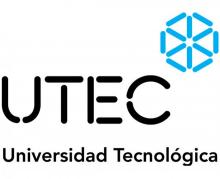Pedagogical Design and Education for Sustainable Development Training Program

Certified coordinators and teachers

Hours of training

Proposals for an Education Model for Sustainable Development
Today, major global issues such as climate change urgently require a change in our lifestyles and a transformation in the way we act and think. To achieve this, we need new skills, attitudes and behaviors that will lead us to more sustainable societies. Education systems need to respond to this need by defining relevant learning objectives and content, introducing pedagogies that empower learners, and encouraging institutions to include sustainability principles in their management structures.
Higher education institutions (HEIs), and universities in particular, are called upon from the outset to play a leading role in achieving them. Precisely because of this, many voices consider that their leadership role in sustainability, through training and research, is in crisis. Part of this crisis is due to the growing pressure facing higher education worldwide: to do more with less. On the teaching side, HEIs are expected to equip students with sufficient knowledge, skills and motivation to understand and address the Sustainable Development Goals (SDGs) through the implementation of Education for Sustainable Development(ESD).
Universidad Tecnológica (UTEC) has been implementing different activities aligned with its Institutional Strategic Plan with the objective of establishing a roadmap aimed at establishing the necessary mechanisms to ensure the quality and relevance of its educational model. Within this framework, UTEC’s interest in reinforcing the competencies of its teachers to implement a culture of sustainability that sustains their daily work and reinforces the importance of integrating sustainability into the curriculum is reflected.
The Pedagogical Design and Education for Sustainable Development training program offers the opportunity to enhance the value of an education that is appropriate and responsive to the new systemic conditions of uncertainty and complexity; an education that fosters in students the increasingly important qualities of adaptability, creativity, self-reliance, hope and resilience. With it, teachers will enhance their skills through an understanding of education and learning theory that integrates the best of past educational practice with the new emphases on transformative learning, capacity building, creativity and adaptive management that are considered part of the new sustainability agenda.
General objectives
Phases
Training
The selected teachers were organized in teams to participate in the online course “Pedagogical Design and Education for Sustainable Development” available on the IESALC Campus training platform.
Design and development
After completing the online course, the teams continued their design and development process with the support of their mentors. The mentors organized weekly webinars. Through the development of synchronous and asynchronous activities based on Project Based Learning, during 8 weeks and 48 hours, participants acquired the skills and competencies to develop virtual and blended learning programs in which they will be able to implement Education for Sustainable Development (ESD) and transformative pedagogies, working in close collaboration with international experts from higher education institutions, and with a special mentoring model to ensure learning outcomes and the final project.
Final project
At the end, the teams attended a closing day where they presented their final designs based on the CoDesignS EDS toolkit. The teachers were able to adjust their delivery and assessment methods to meet the demands of the additional challenges faced by students in the face of online learning and social isolation, and to understand the trends and direction of thinking of new generations of students as well as newcomers to higher education.
Noticias relevantes










































